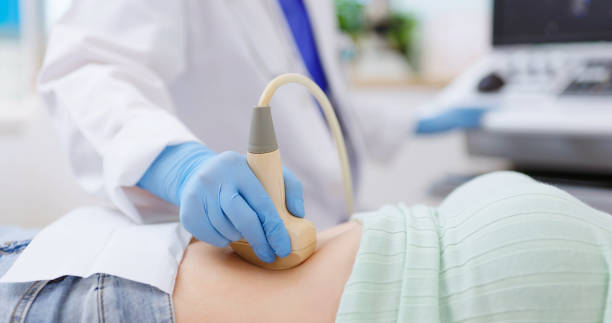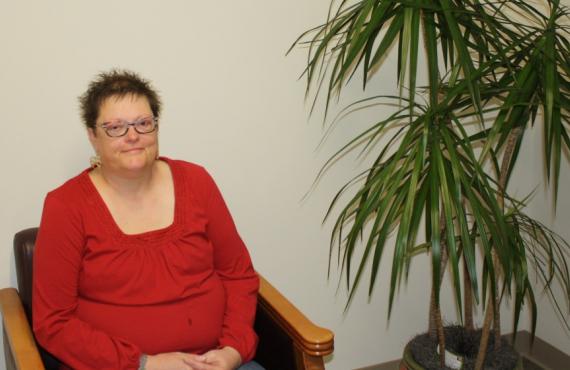Published on September 7, 2023

Read Time: 3 Minutes
Three Things to Know
- Symptoms of ovarian cancer include abdominal or pelvic pain, bloating, and abnormal vaginal bleeding or discharge.
- On average, about 50% of patients diagnosed with ovarian cancer are still living after 5 years.
- You can reduce your risk of developing ovarian cancer by avoiding hormone replacement therapy and maintaining a normal weight.
By Logan Shockley, FNP-C
Phelps Health
Pain in the abdomen or pelvis. Bloating. Abnormal bleeding or discharge from the vagina.
These can be symptoms of ovarian cancer, a cancer of the ovaries, where women produce and store eggs. Ovarian cancer can also start in the Fallopian tubes, which is where eggs travel from the ovaries to the uterus.
Knowing the warning signs of ovarian cancer and when to see your doctor are important because catching this disease early on can improve your chances of survival.
The survival rate for women with this type of cancer largely depends on the stage of the cancer. However, on average, about 50% of patients diagnosed with ovarian cancer are still living after 5 years.

Patients who found their ovarian cancer in the early stages usually live longer compared to patients who are diagnosed with late-stage ovarian cancer.
The four stages of ovarian cancer include the following:
- Stage I occurs when the cancer is confined to one or both ovaries.
- Stage II is when the cancer has spread to the uterus, Fallopian tubes or pelvic tissue.
- Stage III happens when the cancer has spread to the lymph nodes or abdominal lining.
- Stage IV occurs when the cancer has spread to distant organs, such as the liver or lungs.
No screening test is currently available for ovarian cancer, but research is ongoing to develop one. While Pap tests, or Pap smears, can detect other types of cancer or gynecological concerns, these tests cannot detect ovarian cancer.
That’s why you should let your healthcare provider know if you experience any of the following symptoms, which may be signs of ovarian cancer:
- Abdominal pain or bloating
- Pelvic pain
- Back pain
- Changes in your urine or bowels
- Nausea and indigestion
- Abnormal vaginal bleeding or discharge
If you have these symptoms, your healthcare provider may perform a pelvic exam to diagnose you. You also may undergo a transvaginal ultrasound or medical imaging of your abdomen or pelvis.
A CA-125 blood test also can be used to check for ovarian cancer, but this test is not always reliable. In some cases, this blood test can provide false elevated readings of the CA-125 protein, especially around a woman’s menstrual cycle.
According to the Ovarian Cancer Research Alliance, a woman’s chances of getting ovarian cancer is one in 78.
However, certain factors may increase a woman’s risk of getting this disease. Older women are more likely to get ovarian cancer, with the average age of ovarian cancer patients being 63 years old.
In addition, women who have inherited the BRCA1 or BRCA2 gene mutation have a higher risk of developing ovarian cancer. Being overweight or obese also increases your risk.
Other risk factors include the following:
- Family history of ovarian cancer
- Early menarche (first period)
- Late menopause
- Having hormone replacement therapy
- Endometriosis (disorder of the uterus)
- Never being pregnant
To reduce your risk of getting ovarian cancer, you may consider avoiding hormone replacement therapy and/or long-term use of hormonal birth control. Also, try to maintain a normal weight and body mass index (BMI).
For More Information
Logan Shockley, FNP-C, is a certified family nurse practitioner who specializes in medical oncology and hematology at Phelps Health. To learn more, call (573) 458-3324.

